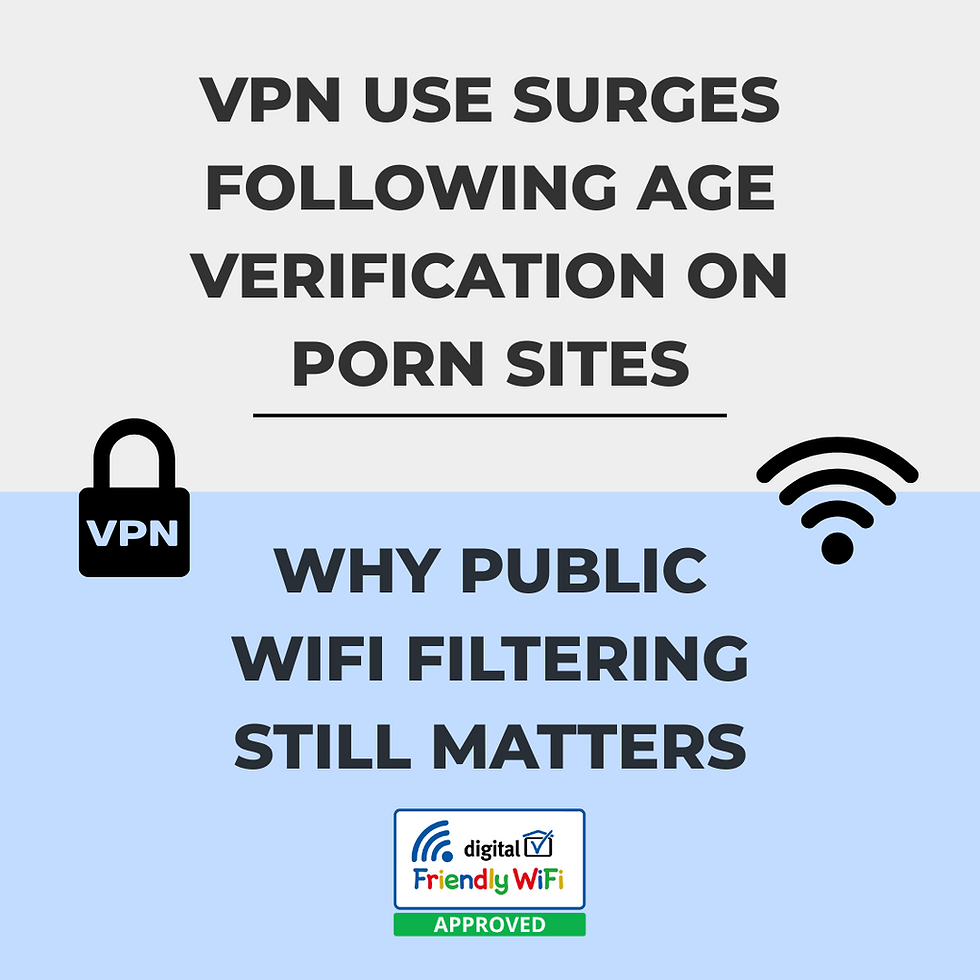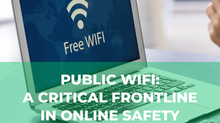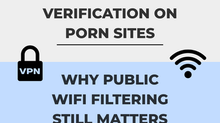VPN Use Surges Following Age Verification on Porn Sites – Why Public WiFi Filtering Still Matters
- Aug 4, 2025
- 2 min read

Recent reports have highlighted a sharp rise in VPN usage across the UK, coinciding with the enforcement of age verification requirements on adult websites under the Online Safety Act. While the intention of the law is to restrict underage access to harmful content, the increased use of VPNs to bypass these controls raises concerns about the effectiveness of age verification in isolation.
The Rise of VPNs: A Loophole in Online Safety?
VPNs (Virtual Private Networks) allow users to mask their location and access restricted content—an ability now being widely exploited to avoid age checks. While VPNs can be useful for privacy and legitimate remote access, they also present a challenge when used to bypass online safety measures, particularly on public networks.
Friendly WiFi Certification Remains Crucial
Friendly WiFi certification plays a vital role in protecting users on public WiFi by ensuring that access to pornography, child sexual abuse material, and other harmful content is blocked at the network level. Unlike device-level tools, network-level filtering applies instantly to anyone connected to the WiFi—creating a safer online environment for all.
Filtering vs. VPNs: A Layered Approach Is Needed
Filtering alone cannot prevent circumvention if VPN access is left unrestricted. This is why Friendly WiFi also encourages and supports WiFi providers to take additional steps—such as blocking access to known VPN services—to prevent users from bypassing filters.
Guidance and Support from Friendly WiFi
As part of the certification process, Friendly WiFi can advise venues on how to assess their existing WiFi setup to determine if it allows for the blocking of VPN services. For venues that wish to enhance their filtering capabilities, we can also provide clear guidance on how to activate these protections—often by working with their existing WiFi provider or filtering solution.
The Responsibility of Public WiFi Providers
Whether in retail, hospitality, education, or transport, public WiFi operators have a duty of care to protect users. This includes:
Blocking harmful and illegal content via certified web filtering
Preventing VPN usage that can bypass these protections
Displaying the Friendly WiFi symbol to demonstrate a clear commitment to online safety
Conclusion
The surge in VPN use should serve as a reminder that digital safeguarding must be multi-layered. While legislation like the Online Safety Act sets the framework, public WiFi providers play a crucial front-line role in enforcing real-world protection. Friendly WiFi certification not only ensures compliance but offers practical guidance to help venues assess, activate, and maintain robust filtering—including blocking VPN access.
To find out more about becoming a Friendly WiFi Certified venue or to review your current filtering setup, get in touch with us today.












































Comments